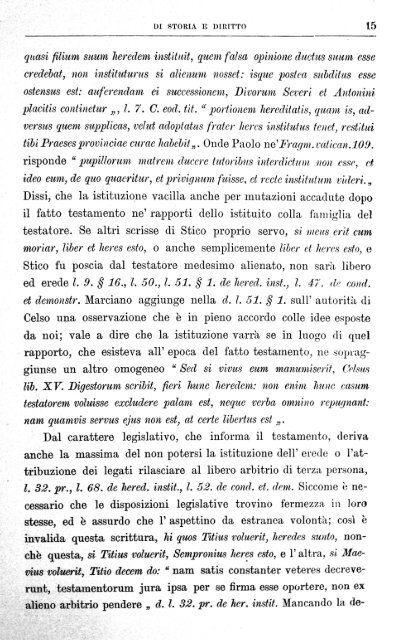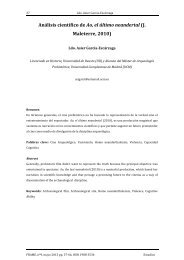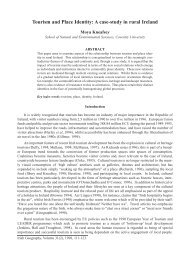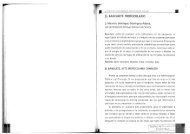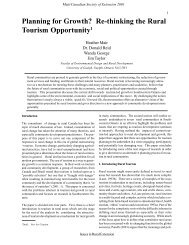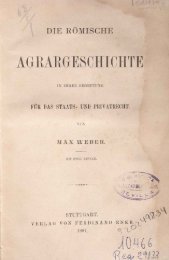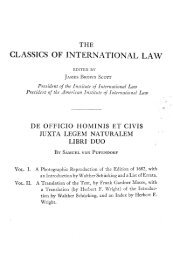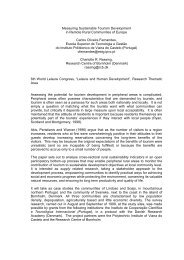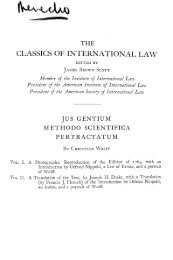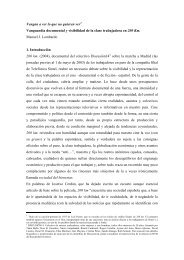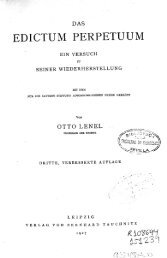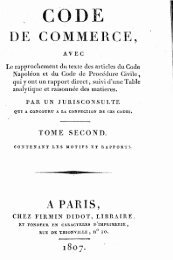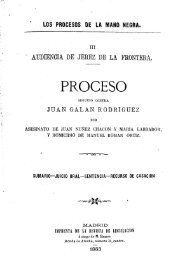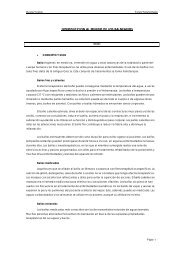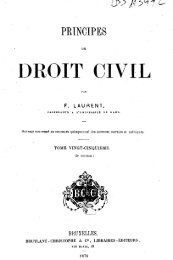Esposizione della regola di diritto romano nemo pro parte testatus ...
Esposizione della regola di diritto romano nemo pro parte testatus ...
Esposizione della regola di diritto romano nemo pro parte testatus ...
You also want an ePaper? Increase the reach of your titles
YUMPU automatically turns print PDFs into web optimized ePapers that Google loves.
1)I STORIA E D[RiTTO 15<br />
quasi ftlium suuln heredem instituit, quem falsa opinione ductus sunnt esse<br />
credebat, non instituturus si alienunt nosset: isque postca sub<strong>di</strong>tus esse<br />
ostensus est: auferendam ei successionem, Dicorunt Severi et Antonini<br />
placitis continetur „,1. 7. C. eod. tit. " portionent here<strong>di</strong>tatis, quam is, ad-<br />
versus quent supplicas, velut adoptatus frater heres institutos tenct, restituì<br />
tibi Praeses <strong>pro</strong>vinciae curie habebit,,. Onde Paolo ne'Fragm.vatican.10.'l.<br />
risponde " pupillorum matrem ducere tutoribzcs inter<strong>di</strong>ctunt non esse, el<br />
ideo eum, de quo quacritur, et privi,gn.um fuisse, et rette institutmn videri.,<br />
Dissi, che la istituzione vacilla anche per mutazioni accadute dopo<br />
il fatto testamento ne' rapporti dello istituito colla famiglia del<br />
testatore. Se altri scrisse <strong>di</strong> Stico <strong>pro</strong>prio servo, si mens erit cum<br />
moriar, liber et heres esto, o anche semplicemente liber et heres esco, e<br />
Stico fu poscia dal testatore medesimo alienato, non sarà libero<br />
ed erede I. 9. § 16., I. 50., 1. 51. § 1. de hered. inst., 1. 47. de cond.<br />
et clemonstr. Marciano aggiunge nella d. 1. 51. § 1. sull' autorità <strong>di</strong><br />
Celso una osservazione che è in pieno accordo colle idee esposte<br />
da noi; vale a <strong>di</strong>re che la istituzione varrá se in luogo eli quel<br />
rapporto, che esisteva all' epoca del fatto testamento, ne soprag-<br />
giunse un altro omogeneo " Sed si vivus eum manumiserit, Celsus<br />
lib. XV. Digestorum scribit, fieri hunc heredem: non enint hunc casurn<br />
testatorem voluisse excludere palam est, neque verba omnino repugnant:<br />
nani quamvis servus ejus non est, at certe libertus est n.<br />
Dal carattere legislativo, che informa il testamento, deriva<br />
anche la massima del non potersi la istituzione dell' erede o l'at-<br />
tribuzione dei legati rilasciare al libero arbitrio <strong>di</strong> terza persona,<br />
1. 32. pr., 1. 68. de hered. instit., 1. 52. de cond. et. dcm. Siccome è ne-<br />
cessario che le <strong>di</strong>sposizioni legislative trovino fermezza in loro<br />
stesse, ed 'e assurdo che 1' aspettino da estranea volontà; così è<br />
invalida questa scrittura, hi quos Titius voluerit, heredes sunto, non-<br />
chè questa, si Titius voluerit, Sem<strong>pro</strong>nius heres esto, e 1' altra, si Mae-<br />
vius voluerit, Titio decem do: " nam satis constanter veteres decreve-<br />
runt, testamentorum jura ipsa per se firma esse oportere, non ex<br />
alieno arbitrio pendere „ d. 1. 32. pr. de her. ittstit. Mancando la de-


